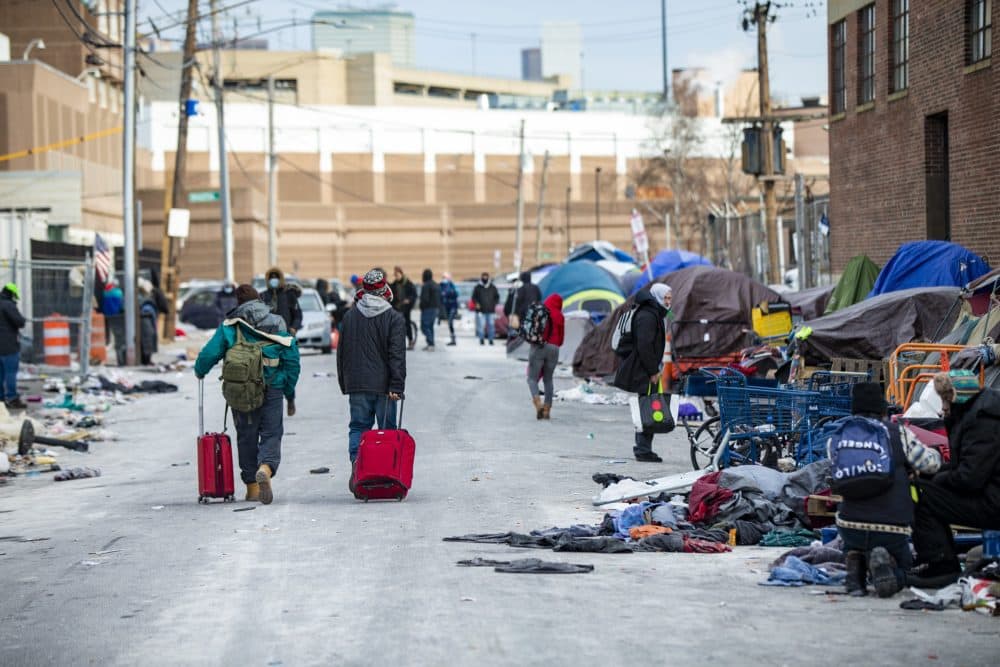Advertisement
Adult homelessness drops, family homelessness increases in Boston during second year of pandemic

Boston city officials say homelessness among adults in Boston dropped in the second year of the pandemic, while the number of families experiencing homelessness increased. That's based on data from the annual homeless census released Wednesday.
According to the report, 119 adults were found unsheltered — staying on the street or in other places unfit for human habitation — during the February 2022 count. That represents a 30% drop from last year's census and follows two years of increases in the unsheltered population.
Jim Greene, assistant director for street homelessness initiatives in the Mayor's Office of Housing, attributed the drop to new initiatives to house people who were living in a large tent encampment near Massachusetts Avenue and Melnea Cass Boulevard, or "Mass. & Cass," and other areas.
"You know, 119 people is still 119 too many. But ... if we hadn't had those partnerships in place and an incredible amount of hard work by multiple city and community partners, we'd be announcing probably a record high number of homeless people today."
Through 2021 and the beginning of 2022, according to Greene, those efforts led to 150 people being moved into permanent supportive housing and another 154 people being placed in so-called low-threshold housing; those are programs that provide support services to help residents address issues including substance use disorder and other mental health struggles while they are put on a path to permanent housing.
There was an 8% decrease in adults staying in emergency shelters noted in the February census. Greene and other officials attributed that decrease in part to efforts by the city and homeless service providers to de-populate mass shelters during the pandemic. Spreading people out between the main shelters and temporary shelters set up in college dorms, hotels and motels allowed them to work closely with case managers to address health, financial and employment issues while looking for housing.
Despite the gains made in fighting homelessness among unaccompanied adults, homelessness among families increased 10% in Boston this year over last. At the point of the February census, 843 families — representing 2,798 people — were homeless in Boston. But all of them were in shelters or transitional housing programs, according to the city's report.
"The family homelessness has so much to do with ... younger families with really limited income and resources facing very high housing costs," Greene said. "I think the longer-term economic struggles of low-income households have made it difficult for people to hold ground ... [as] rents are rising again."
In response to that crisis, Mayor Michelle Wu in March convened a commission to end family homelessness, of which Greene is a member.
"There's still so many families at risk, that figuring out how we do more to prevent outright homelessness in families and how, as a commonwealth, we see a greater investment and commitment in affordable housing resources — I think that's really critical," he said.
